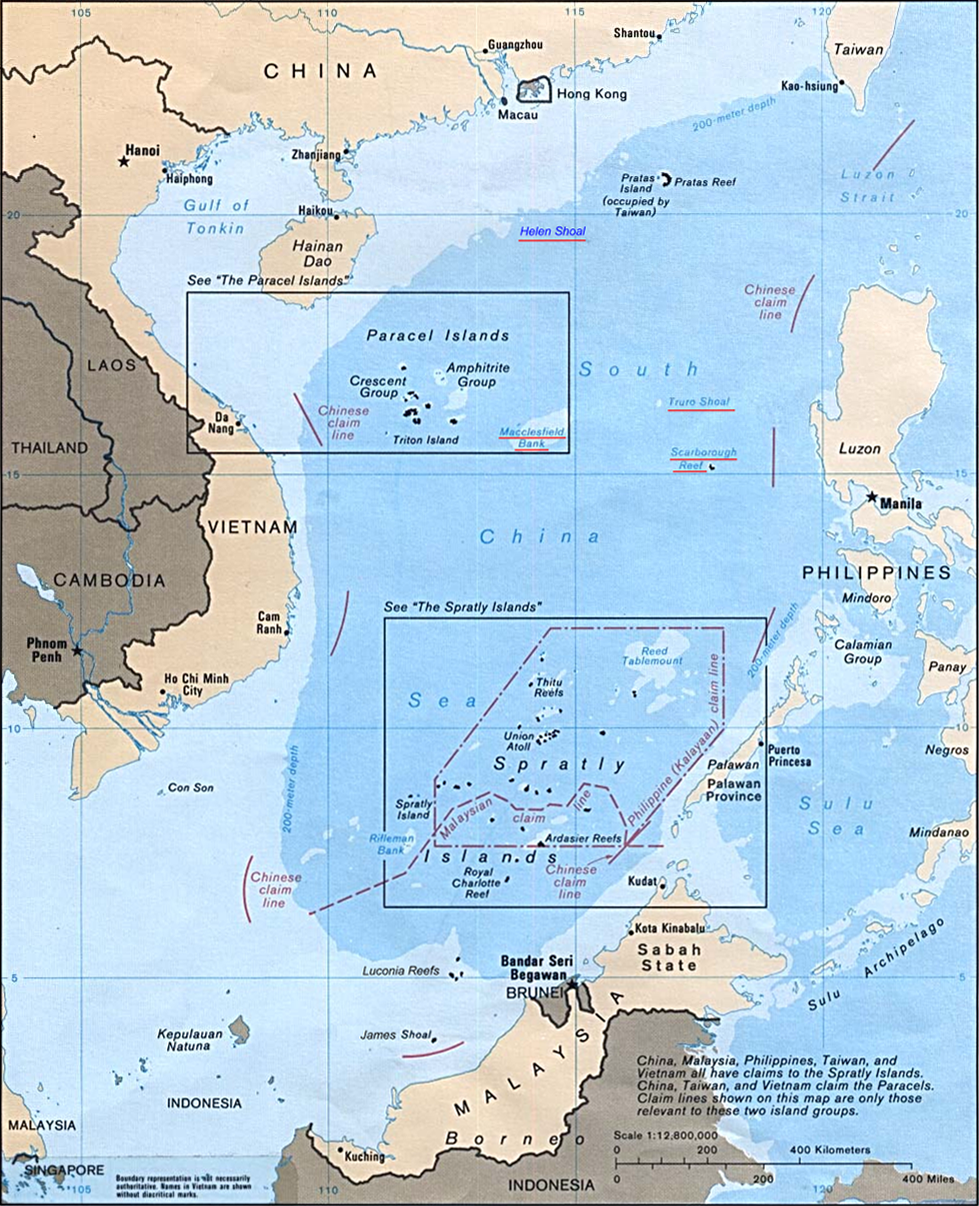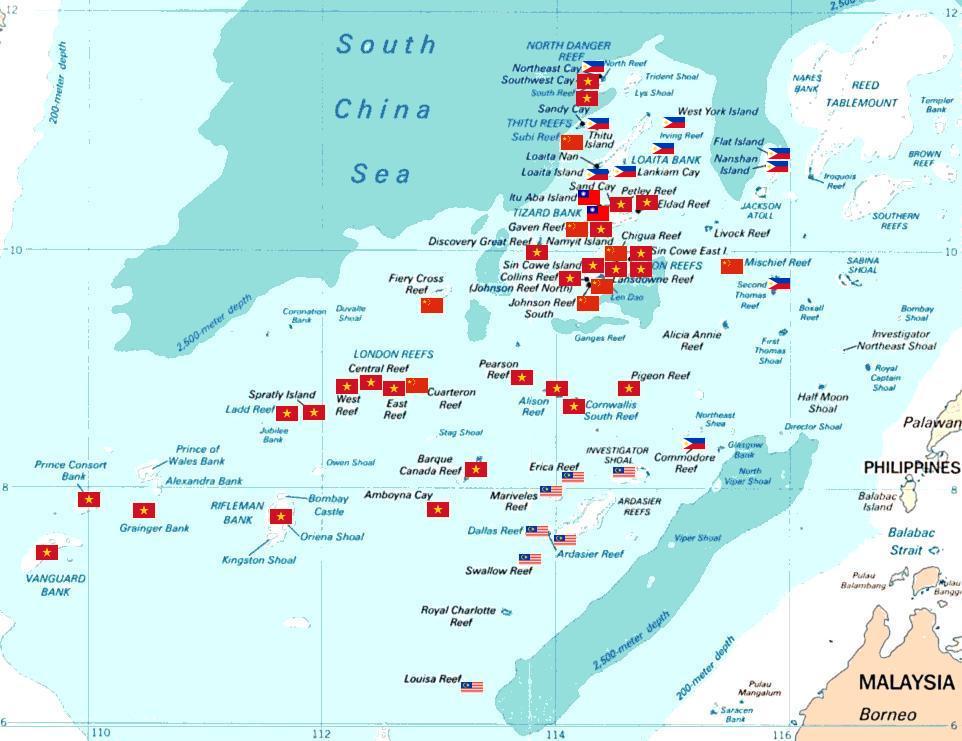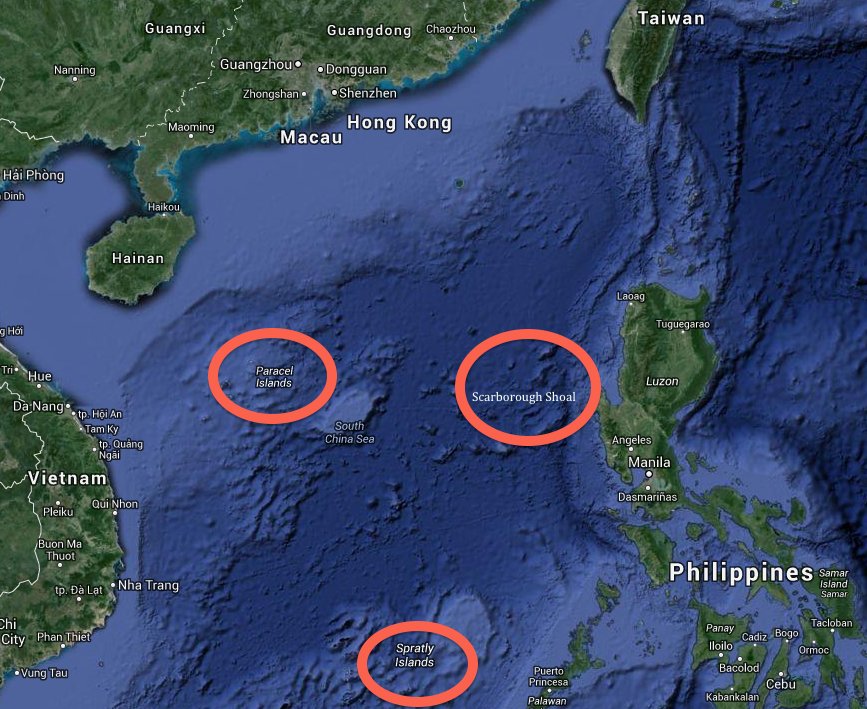 |
| Facing the South China Sea (Photo credit: Wikipedia) |
- America or India or Japan do not need the South China Sea. For China it's lifeline. You could practically choke the Chinese economy by disrupting this sea lane. And to make that point, China is building a $40 billion road through Pakistan to get to the Arabian Sea as an alternate route. It is not a legitimate alternate route. Land is more expensive than sea. The Chinese economy is mostly along the South China Sea. In western China there is desert. From western China the core China is literally a continent away. The road being built in Pakistan is a call for empathy.
- China could be close to being an alternate political system. As long as a country can create respect and protection for free speech, it is possible even to have a one party democracy. China might move in that direction. If China can evolve to respect free speech, and if the Chinese Communist Party can offer two candidates for every major office, like president, governor and mayor, that ordinary Chinese then pick from through adult franchise, then it might actually end up with a better political system than what America has.
- But the small countries surrounding the South China Sea don't have the luxury to empathize. It probably feels like a 800 pound gorilla is asking a mouse for empathy.
- As long as direct confrontation can be avoided, and channels of communication kept open, and all the major powers can show adult behavior, the South China Sea is actually a great way to build a meaningful positive relationship between America, China, Japan and India. The tussle, handled well, could be big country therapy. Because there is some healing that needs to happen. Ask how Modi feels about Britain. That is how Xi Jinping feels about Japan. Only Japan had Hiter, as far as the Chinese are concerned. Starving a people is not in the same league as gassing them. Churchill starved. Hitler gassed.
- For China it might be less about real estate, and more about an iron guarantee that the sea lane will not be disrupted.
- As for the islands, while they stay disputed, who has current control over them? Is there a catalogue? That was rhetorical. I am sure there is. Well, that's a start.
- The 12 nautical miles is a beautiful thing. A country has 12 nautical miles from its shores. Beyond that is international waters. Even if every island in the South China Sea ends up with clear, uncontested ownership, no matter which way they get decided, that still leaves the sea lanes open. And that's the key thing.
- There can be a process that all powers big and small can agree to. And that judicial process could take its time to decide on the final borders.
- By the way, that is also true for the India-China land border. The final border has not been finalized.
- All of the South China Sea can not belong to China any more than all of the Arabian Sea can belong to India, or any country. That goes against the 12 nautical miles rule.
- Just like the solution in Kashmir is to turn the Line Of Control into the final boundary and then tone down the tension enough to make the border meaningless, perhaps to the point of a South Asian economic union. Perhaps countries should keep islands they have and beyond that respect international law. The sea is globally shared, just like every other sea.
- The logic of the solution is the easy part. The hard part is the complex geometry that leads to it, step by step.
- Only in Kashmir there is no oil and gas.
- Forget building islands, if the tensions could be nullified, this might be the best place in the world to build ocean cities. As for oil and gas, think solar. The world is fast moving to solar. The ocean cities could run entirely on solar.
- The South China Sea tension might last as long as the China-Taiwan tension. The sea is a good outlet to the tension. It has to be managed until it is resolved.
- Who owns the Gulf Of Mexico? Or the North Sea? Or the Red Sea? Or the Bay Of Bengal? Or the Japan Sea?
- I guess this is a pretty good place where America gets to make itself useful.





























No comments:
Post a Comment